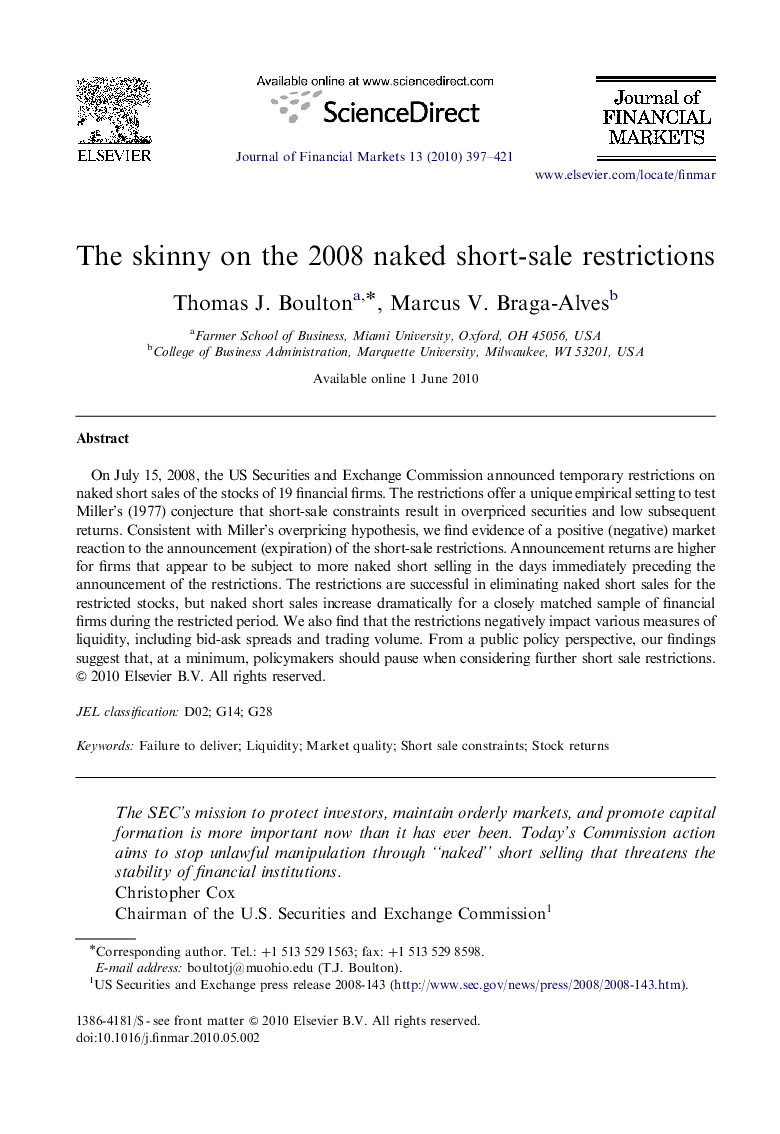| Article ID | Journal | Published Year | Pages | File Type |
|---|---|---|---|---|
| 961482 | Journal of Financial Markets | 2010 | 25 Pages |
Abstract
On July 15, 2008, the US Securities and Exchange Commission announced temporary restrictions on naked short sales of the stocks of 19 financial firms. The restrictions offer a unique empirical setting to test Miller's (1977) conjecture that short-sale constraints result in overpriced securities and low subsequent returns. Consistent with Miller's overpricing hypothesis, we find evidence of a positive (negative) market reaction to the announcement (expiration) of the short-sale restrictions. Announcement returns are higher for firms that appear to be subject to more naked short selling in the days immediately preceding the announcement of the restrictions. The restrictions are successful in eliminating naked short sales for the restricted stocks, but naked short sales increase dramatically for a closely matched sample of financial firms during the restricted period. We also find that the restrictions negatively impact various measures of liquidity, including bid-ask spreads and trading volume. From a public policy perspective, our findings suggest that, at a minimum, policymakers should pause when considering further short sale restrictions.
Related Topics
Social Sciences and Humanities
Economics, Econometrics and Finance
Economics and Econometrics
Authors
Thomas J. Boulton, Marcus V. Braga-Alves,
